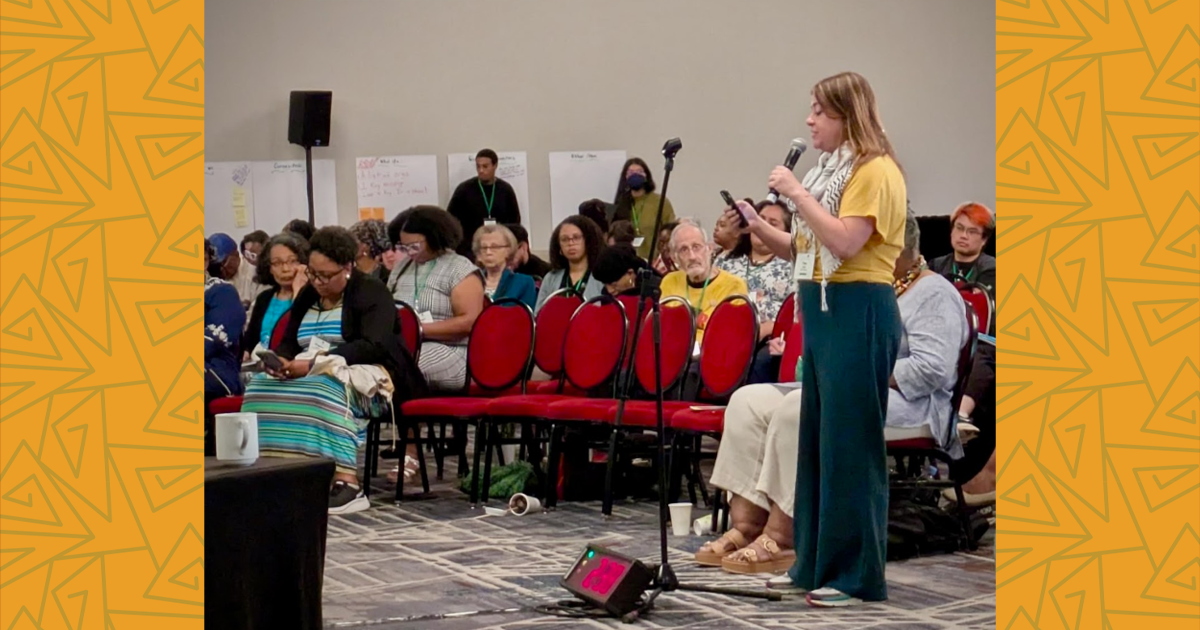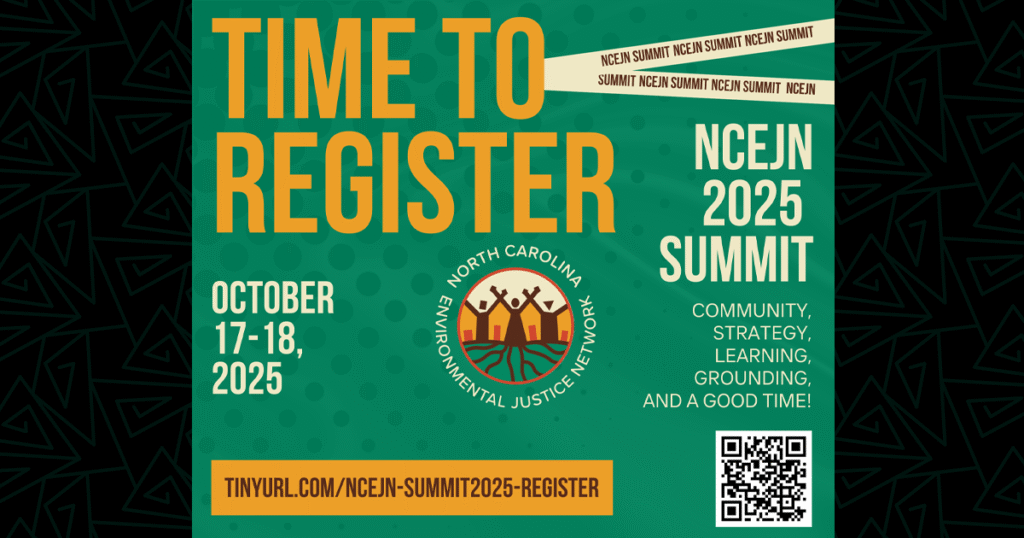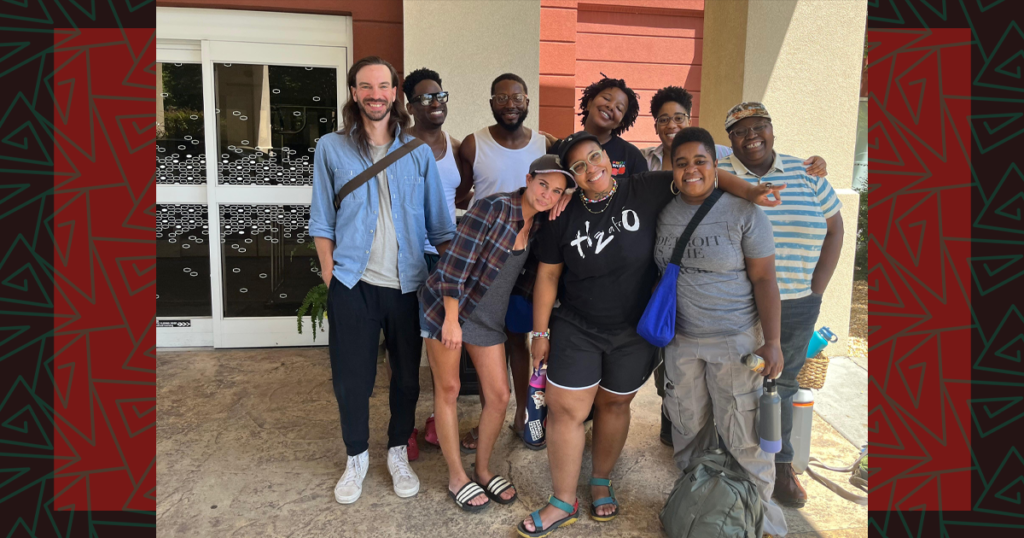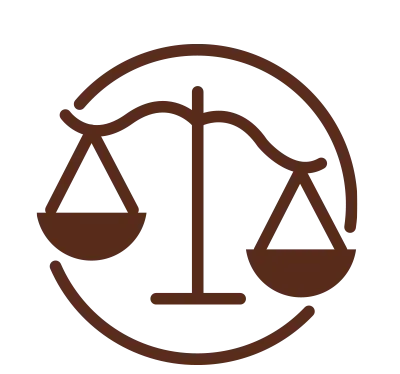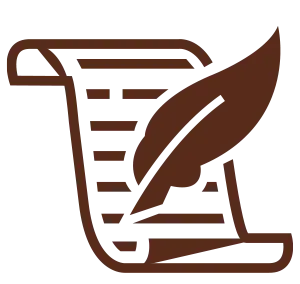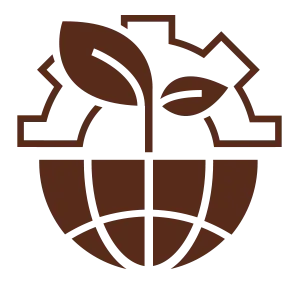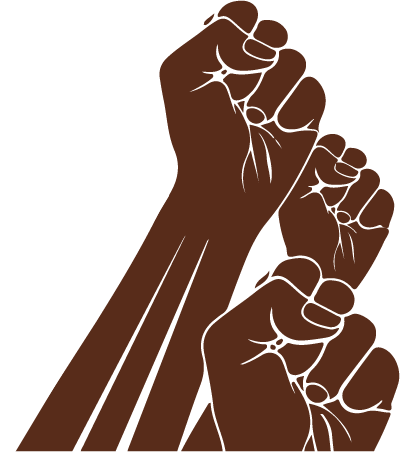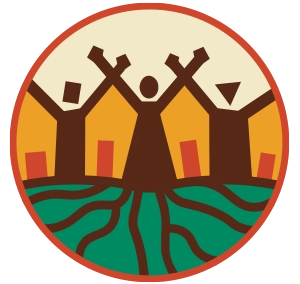Tina Shull, PhD, UNC Charlotte professor, at the Peoples Hearing (June 11, 2025)
It’s an honor to be here and participate in solidarity; thank you NCEJN for your organizing and to all speakers and witnesses. My name is Tina Shull, I’m a public historian and history professor at UNC Charlotte. I study US foreign policy & empire, climate change and migration, and immigration enforcement.
In the wake of my former husband being torn away by ICE when I was in grad school, I have been especially committed to accompanying people in immigration detention and all seeking asylum and safe shelter, and documenting the environmental and climate crisis of prisons and border militarism. I’ve been especially humbled to support students and communities in developing community archives and storytelling projects, including Climate Refugee Stories and ClimateInequality CLT. These are student-led and community collaborations that offer concepts of “climate refugee-ness” and environmental displacement as ways to connect peoples across time and place. Climate change impacts communities unequally, but it is coming for us all.
ClimateInequalityCLT.com is a public history and community mapping project at UNC Charlotte inspired by a partnership with the Humanities Action Lab at Rutgers University and their traveling Climates of Inequality project, through which our students and Charlotte teachers curated a museum exhibit. Charlotte is a corporate city, a hub of climate crimes that likes to erase its history, but our project lifts up a fuller truth of Charlotte’s proud history of environmental justice organizing, and how students, teachers, and schools have always been on the front lines of forging solutions. (See images below for Panels from the Climates of Inequality exhibit at the Levine Museum of the New South in Charlotte, NC, in the summer of 2023, curated by Dr. Tina Shull, CMS teachers, and students in UNC Charlotte’s Public History program.)
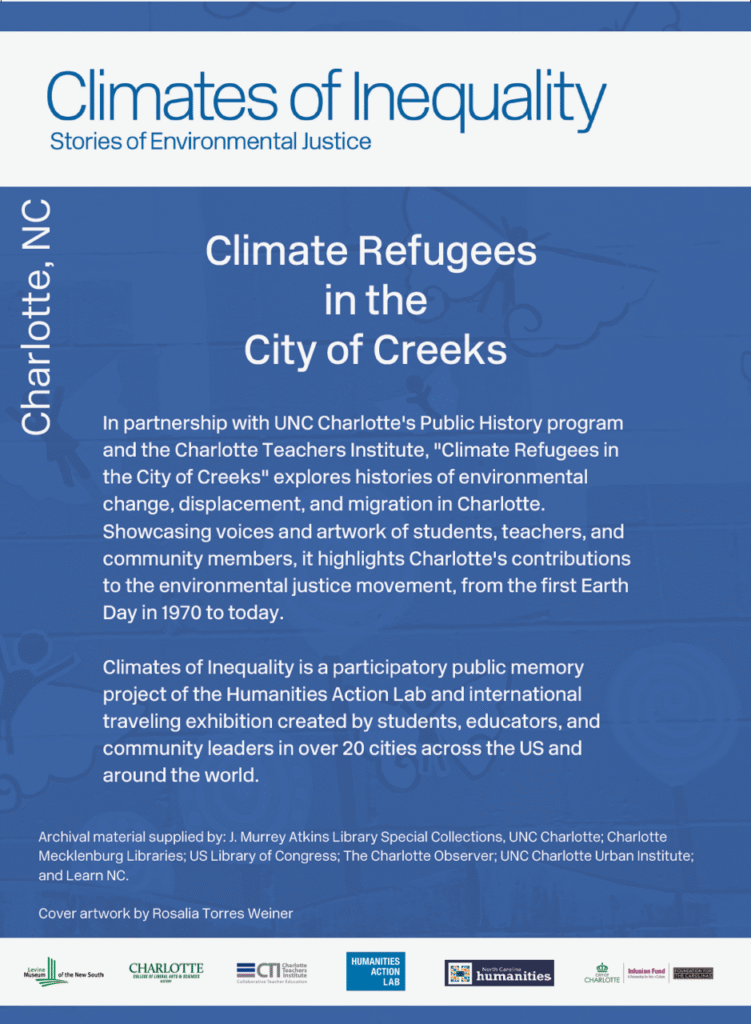
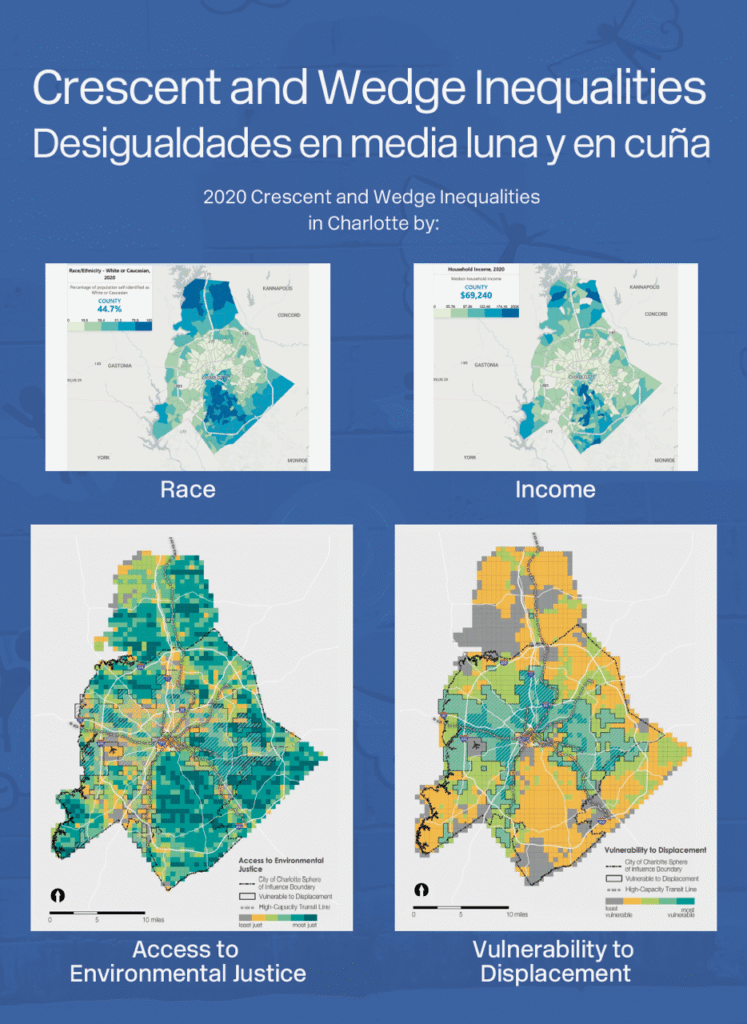
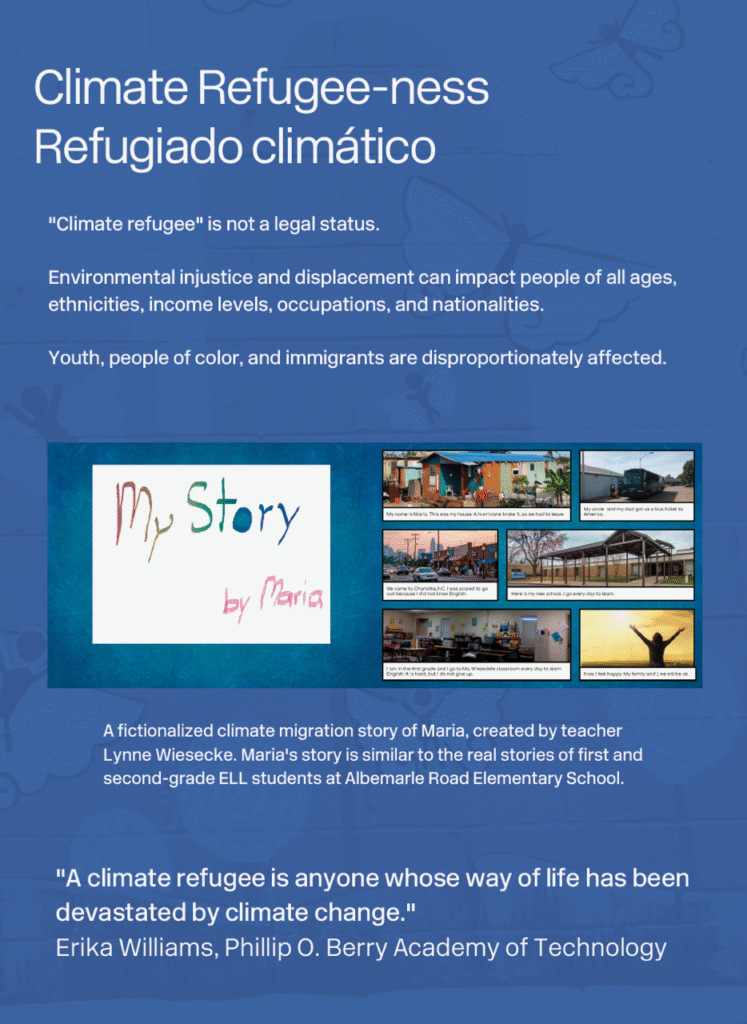
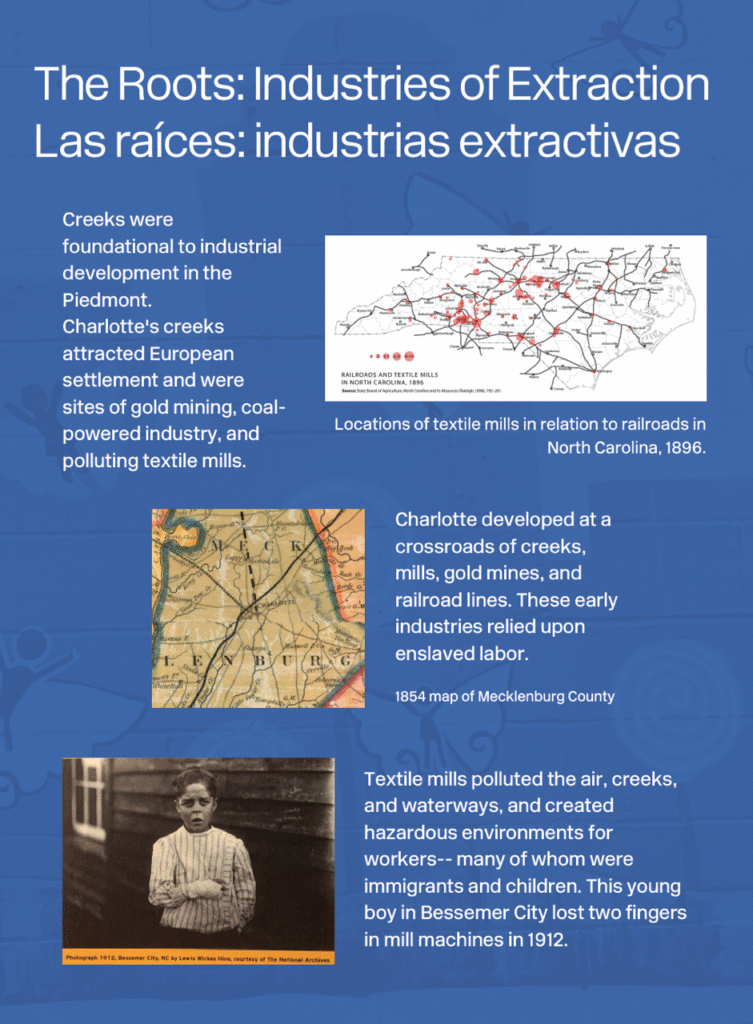
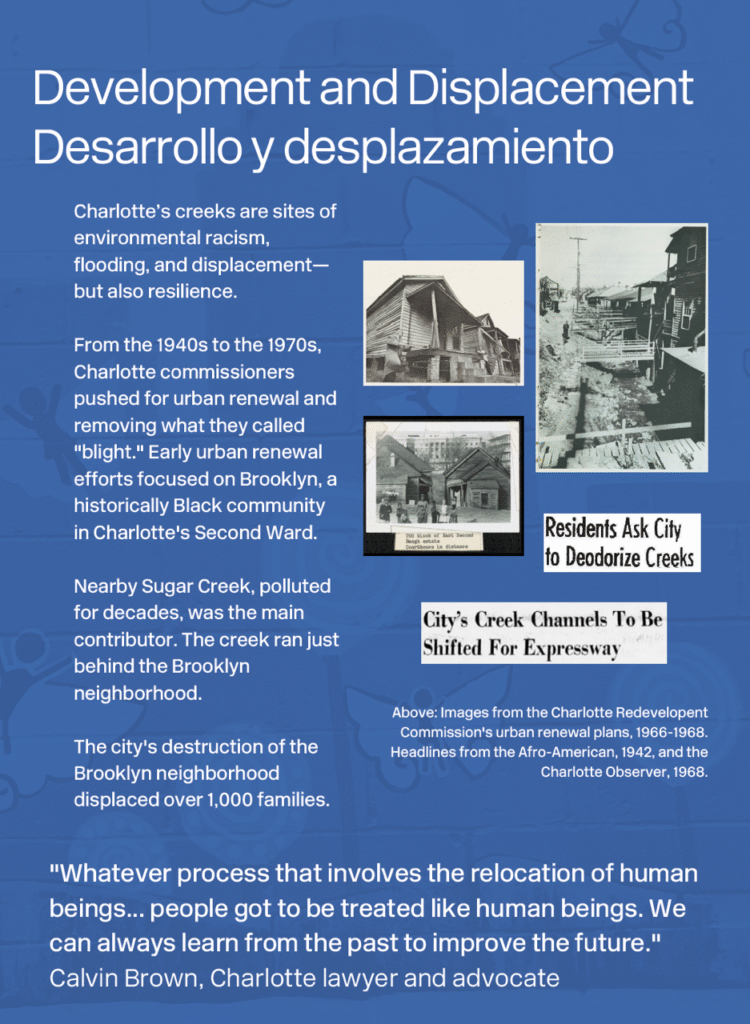
But we and public education are under attack: international and immigrant students, Diversity, Equity, and Inclusion, critical race theory–which is just code for telling the truth about US history–are under attack. Research & budget cuts, firings, fear and silencing mount by the day, and most leadership who we can no longer trust first ran universities into the ground by running them like corporations are now just giving away the ground from under us.
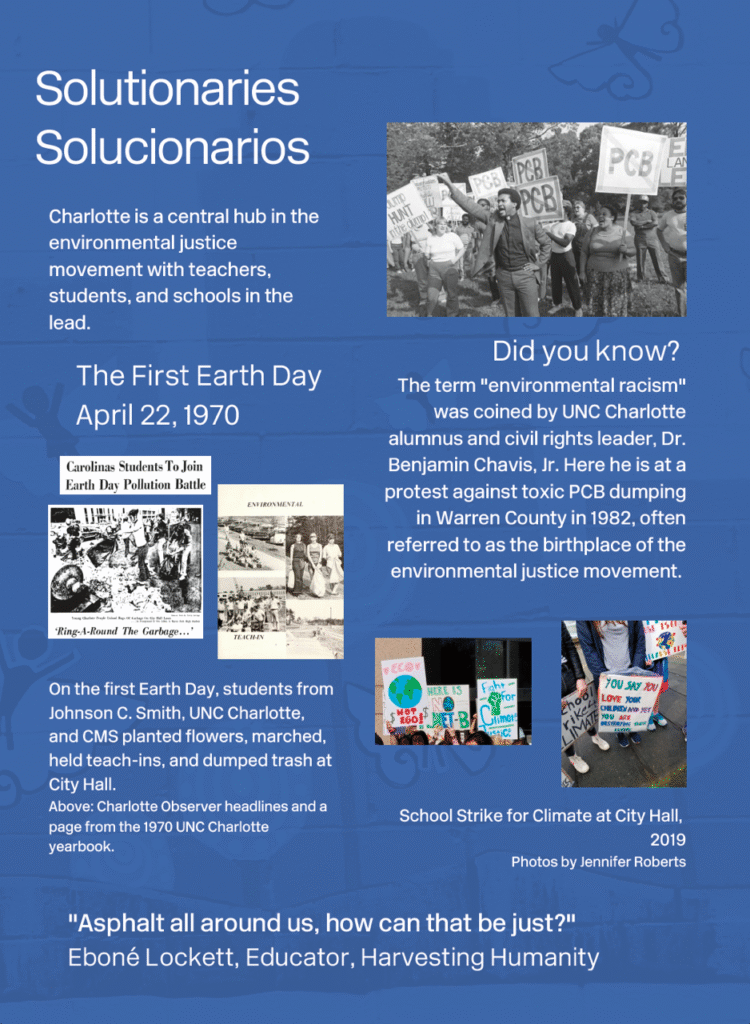
But I’m here to brag on our students; this testimony is a love letter to them, and to all educators and our Charlotte EJ organization research collaborators: like Eboné Lockett at Harvesting Humanity, CleanAIRE NC, Greenfaith, Black Girl Environmentalist, Sol Nation, former mayor Jennifer Roberts and the Charlotte Mecklenburg Climate Leaders.
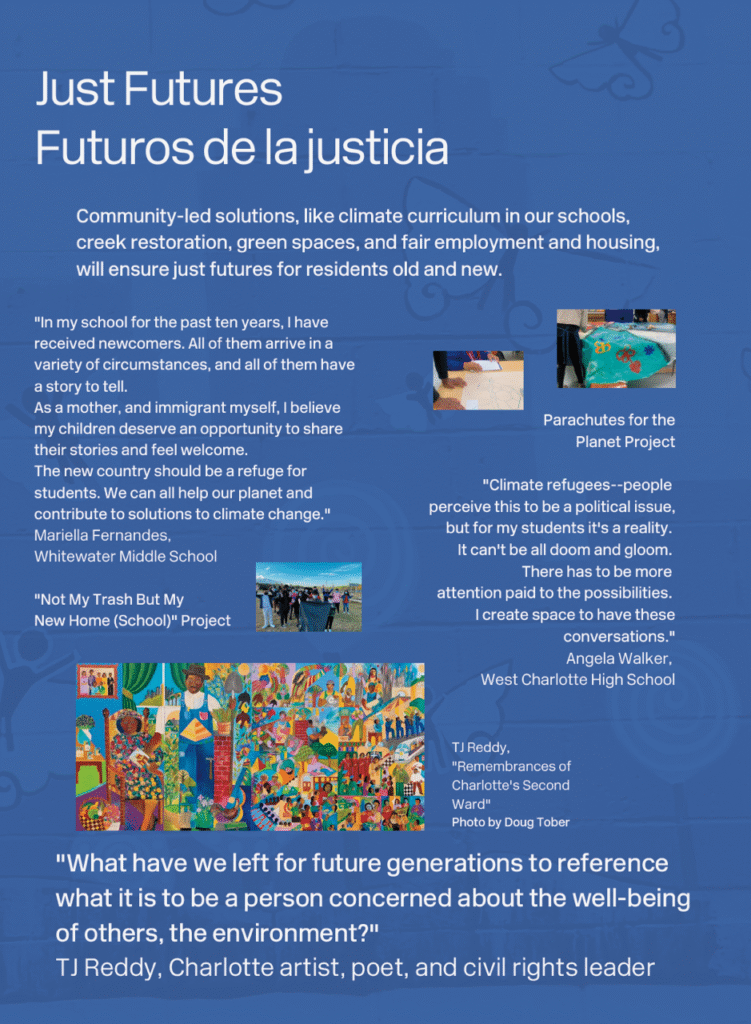
Our students have collaborated with these local, impacted experts to:Conduct oral histories of EJ leaders and educators, gather archival research of textile mill and industrial pollution, urban renewal and gentrification; they’ve been documenting their own stories of climate displacement and immigration, and family and community cancer clusters, documenting the Colonial pipeline spill and coal ash pollution; they’ve been demanding university fossil fuel and military divestment (and getting suspended and expelled and visas revoked for telling truth!); supporting citizen science research, saving federal data sets, mapping heat and climate inequities, doing union organizing, building community gardens, restoring and preserving gravesites of formerly enslaved communities; curating exhibits and organizing mutual aid, film screenings and public education events; researching the dirty deed history of Charlotte’s cop city, holding climate grief circles, and one of our students, Zed Bates-Norris, even correctly predicted the flooding and climate displacements of Hurricane Helene in western NC in their Masters thesis research! I can go on…
Finally, as an immigration historian in this moment, I want to end with some thoughts on the Sanctuary movement – at its height, half a million participants organized in the mid 1980s across borders and interfaith, university and local communities; often called a new underground railroad coordinating to shield Central American refugees from deportation to US-backed civil wars and death. It was the largest mass civil disobedience against detention and deportation organized in US history. It effectively saved thousands of lives. But also, a central tactic of the movement was truth-telling–centering the voices and testimonies of people speaking truth to the harms of US war, imperial violence, ecocide and genocide being perpetrated abroad. The Sanctuary movement, like this people’s hearing, put the US empire on trial through building alternate spaces of care and compiling an archive of irrefutable knowledge.
Sanctuary means refuge, safety, freedom, a place of study and reflection, and all that we hold sacred. This is what we need – to support and fund public education, students and educators, historic preservationists, storytellers and cultural workers, the arts and humanities, and community-engaged research collaborations, if not in traditional school spaces which may be eroding, then in our own, sanctuary -freedom school spaces, so that students and youth can keep leading the way, to use Eboné Lockett’s term, as “solutionaries.”
